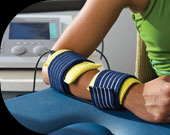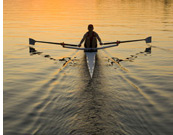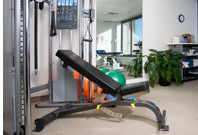Quality care for a healthy, active life
Make an appointment
514 397-2242
PHYSIO Bonaventure
800 de la Gauchetiere Ouest, Suite 8850
Montreal, Quebec H5A 1K6
A Toast to Water!
By: Arièle Ali, pht
Need more energy? Want to build more muscle? Want more beautiful, clearer, younger looking skin? Drink up!
On average, our bodies are made up of at least 60% water. Water flushes toxins out of vital organs, aids the digestive system, regulates our body temperature and serves to transports nutrients within our cells. If your goals include getting fit, losing weight and/or leading an overall healthier, more beautiful life, one quick and easy change which will help you on your way to success is to drink more water.
How much water do you need?
The standard recommendation for the average adult is 2 litres of water per day. Individual needs depend on several factors including activity levels, climatic conditions and health status.
Climatic Conditions
Heat, humidity and high altitudes (greater than 2,500 metres) increase loss of bodily fluids. During winter, heated indoor air can also increase the loss of moisture from your skin.
Health Status
In cases of fever, vomiting and diarrhea, additional water is required to replace lost fluids. In these cases, oral rehydration solutions such as Gatorade or Pedialyte may also be required to restore proper sodium and potassium levels in the blood. On the other hand, there are other medical conditions such as congestive heart failure where water intake needs to be limited.
Breast-feeding or Pregnancy
Expectant or breast feeding mothers typically need to increase their fluid intake to stay hydrated.
Activity Levels
During exercise, water is lost primarily through the breath and perspiration. A loss of as little as 1% of your body weight in water can adversely affect athletic performance by causing muscle fatigue and impair thinking (your brain is made up of 80% water). Further water loss can cause headaches, cramps and dizziness as your blood viscosity increases and your body’s core temperature rises. Ideally, you should drink water before, during and after exercise to avoid dehydration. For high intensity exercise lasting over 45 minutes, you may want to consider drinking a sports drink to replenish lost electrolytes
Is it possible to drink too much water?
Yes. Though rare, it is possible to consume too much water. In such a case, blood electrolytes (such as sodium and potassium which are required for proper heart and muscle function) become diluted leading to a condition known as hyponatremia. Endurance athletes who drink large amounts of water are more at risk of developing hyponatremia than a typical healthy adult engaged in regular activity.
Quick water facts:
- Of all the water on Earth, less than 1 % can be used as drinking water.
- Thirst should not be your only guide as to when to drink water. Usually by the time you feel thirsty your body is already becoming dehydrated. As you get older, your body also becomes less adept at detecting dehydration and sending thirst signals to your brain.
- Lean muscle is composed of 75% water – to build muscle your body needs to be well hydrated.
- Over half of the human body is made up of water - you can survive a month without food but not a week without water.
- Drinking at least 5 glasses of water a day can lower your risk of dying from a heart attack by at least 40%.
- Fatigue is often caused by dehydration. Drinking water gives you energy so the next time the midday slump hits try downing a glass or two of water instead of reaching for a cup of coffee or a candy bar.



